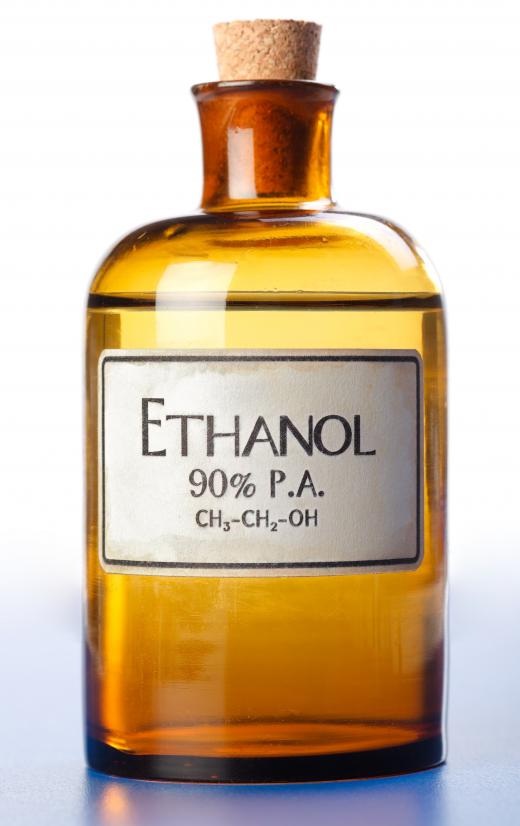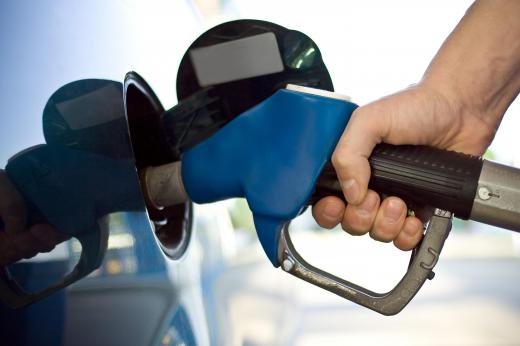Ethanol is a chemical compound that can be used for a variety of purposes. For thousands of years, it has been used as the base for alcoholic drinks, but since the 20th century, a larger purpose has been found for it. The most common ethanol use in the modern era is as fuel.
Ethanol is made from crops, primarily corn and sugar cane, although barley, potatoes, and other crops can be used. The crops are harvested and ground, then put through a process that cooks the grain down. The mash is then altered to change the high starch content into sugars, which is then fermented into alcohol. Distillation and dehydration treatments separate the ethanol from the solid mass and remove any excess water.

At this point, the mixture is similar to any grain-fermented alcohol, such as whiskey or rum. Laws prohibit ethanol fuel from being drinkable, so additives are thrown into the mix, making it poisonous to drink. The ethanol fuel is now ready to be used as a gas alternative, or to be further mixed with gasoline to create an ethanol-blend fuel.
Henry Ford was an early proponent of ethanol fuel; some of his earliest motor vehicle inventions were meant to run of pure ethanol or ethanol fuel blends. Many have proposed ethanol as a viable alternative to vanishing resources of fossil fuel, leading to some state and federal government incentives meant to increase production. Yet ethanol use as fuel remains highly controversial, and many believe that the cost and requirements of production may have potentially devastating results.

Ethanol use as fuel can work in two separate ways. Some vehicles can be modified to run on pure ethanol, but this is a far less common application, and may not be legal in all areas. Typically, ethanol is found as an additive to traditional fuels, often called flex-fuels. In Brazil and the United States, where ethanol use as fuel is the highest in the world, flex-fuels are a far more popular and common option than pure ethanol.

The advantages and disadvantages of ethanol use as fuel are complicated, and experts have yet to achieve a true consensus on whether it is a good idea or not. Proponents of ethanol use as fuel say that ethanol blend gasoline burns cleaner, producing less carbon dioxide and fewer greenhouse gases. However, detractors point out that ethanol contains considerably less energy than gasoline, making it less efficient and possibly an even greater cause of greenhouse gas emission for the same amount of power.

Detractors also argue that ethanol use as fuel can be harmful to developing nations. If the production of ethanol becomes profitable in countries where poverty is rife, malnutrition and starvation rates may increase as farmers convert crop space to growing crops for ethanol production rather than food. Some severe critics of ethanol use as fuel even go so far as to suggest that government-approved subsidies for ethanol crops are in the financial interest of representatives from corn belt states, and may not be honestly in the best interest of the people.

Ethanol use as fuel will probably remain controversial for many years. As fossil fuel reserves empty, however, the growing popularity of ethanol fuel may greatly serve humanity as an interim step away from non-renewable energy sources. Until tricky technological marvels such as hydrogen fuel cells are perfected, ethanol fuel may be the best bet for the environment and the global community.

